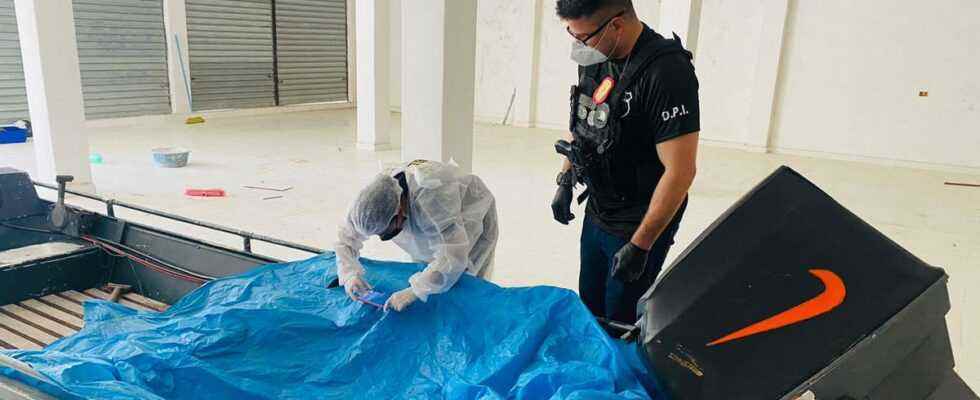Traces of blood have been discovered on the boat of a suspect arrested in connection with the disappearance since Sunday in the Amazon of a British journalist and a Brazilian expert.
Read alsoIs the Amazon threatened with extinction?
“Traces of blood were found on the boat of Amarildo da Costa de Oliveira, 41, known as “Pelado”, referred to as “suspicious” and arrested on Tuesday, Brazil’s federal police said in a statement Thursday. “The material collected is on its way to Manaus”capital of the Amazonas State region, “to be subjected to an expert assessment”according to the release, along with footage of investigators taking photos of what appears to be a small bloodstain on a blue tarp inside a motorboat with peeling paint.
Dom Phillips, 57, regular contributor to the daily The Guardianand Bruno Pereira, 41, a recognized expert on indigenous peoples, are missing in the Javari Valley region, a region “dangerous” according to police, where they were conducting interviews for a book on environmental conservation. The two men left Atalaia do Norte, in the state of Amazonas, to interview residents around a Funai base – a government body responsible for indigenous peoples – and reached Lake Jaburu on Friday evening. They headed back on Sunday morning but did not return to Atalaia do Norte as planned, after a stop in the community of Sao Rafael, where Bruno Pereira had scheduled a meeting with the local chief.
“Where is Dom Phillips? Where is Bruno Pereira?
Witnesses said they saw the suspect speed past in a boat heading in the same direction as Dom Phillips and Bruno Pereira when they were last seen. Police said the man was arrested for carrying unauthorized caliber ammunition and drugs. This disappearance triggered the mobilization of personalities and groups for the defense of the environment and human rights, and demonstrations were organized on Thursday in London and Brasilia.
The journalist’s family called on the British and Brazilian authorities on Thursday to step up their efforts to locate the two men, whom they still “hope” to find. “Where is Dom Phillips? Where is Bruno Pereira?asked the journalist’s sister, Sian Phillips, in a statement to the press during a rally of around 30 people organized in front of the Brazilian embassy. “We want the British authorities to put pressure on the Brazilian government”, “we want research to continue”, “we want to know what happened to them”she launched, accusing the Brazilian authorities of having delayed in starting the search.
Read alsoIn the Amazon, the gold miners’ offensive in protected indigenous territories
The federal police said Thursday that they would continue the search with the armed forces “so that Pereira and Phillips return as quickly as possible to their loved ones”. The day before, she had admitted not excluding “no leads”including that of the homicide, in a region considered “dangerous” where a lot of trafficking takes place. Very difficult to access near the Peruvian border, the Javari Valley is experiencing an escalation in armed violence due to the presence of miners, gold miners, poachers and drug traffickers. In Brasilia, the activist for the defense of indigenous peoples Kamu Dan, belonging to the Wapichana ethnic group, told AFP to wait “some answers” that “the government, Funai and the police do not give us”. “There is neglect on the part of the state in defending indigenous peoples, who are left on their own against loggers, miners, invaders, drug traffickers”said the activist.
Brazil’s President Jair Bolsonaro called Phillips and Pereira’s expedition a“adventure not to be recommended” and said that “in a region like this”, “everything can happen“. On the sidelines of the Summit of the Americas he is attending in Los Angeles, he said Thursday: ‘Pray to God that they are still alive’ but “with each passing day these chances decrease”. “In general, we go to this region with an escort. They went on an adventure, he added. Words that raised criticism from members of UNIJAVA (union of indigenous villages in the Javari Valley), which actively participates in research. “Bruno and Dom were actually doing a service to the Brazilian state, because they were serving UNIJAVA, talking about the protection of indigenous lands, which the Brazilian government does not do”commented to journalists Eliesio Maruba, legal manager of this association.
